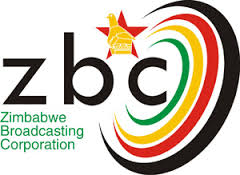Story by Justin Mahlahla
Zimbabwe is fervently advancing renewable energy ventures guided by its national energy policies with significant strides in solar energy development, the Minister of Energy and Power Development, Honourable Edgar Moyo has said.
Addressing the 9th Powering Africa Summit in Washington D.C., the United States of America, Hon Moyo said despite grappling with the dual challenge of attaining energy self-sufficiency and universal sustainable energy access, Zimbabwe’s national energy blueprint forecasts an escalation in demand, projected to reach 2,300MW by 2024, and further soaring to over 5,000MW by the dawn of 2030.
This surge is propelled by robust policy frameworks consummated in the ‘Zimbabwe is open for business’ mantra inviting global investment, particularly in our rich mineral sectors and expansive agricultural initiatives aimed at securing food sovereignty.
Zimbabwe aspires to attain universal access to sustainable energy in Zimbabwe by 2030 from the current 62% access in line with the broader vision to attain upper middle income status by the same horizon.
Furthermore, the country’s resolve to ensure energy self sufficiency is epitomised by the recent establishment of a risk guarantee mechanism aimed at bolstering investor confidence and ensuring competitive procurement of solar projects on the principles of fairness, affordability, accountability and transparency, said the minister.
“Comprehensive studies including load forecasting, system development planning, network master planning, rural energy master planning and national electrification analyses are integral to our ongoing National Integrated Energy Resource Plan. This strategic blueprint is poised to guide pivotal energy investments, ensuring they align with our overarching vision of a long term, low cost, sustainable and resilient energy ecosystem.
“The imperative of transitioning towards net-zero emissions while safeguarding energy security and universal access remains paramount. Our journey is marked by a diligent balance between strengthening and/or modernising our energy infrastructure and embracing cleaner technologies, thereby reducing our carbon footprint and fostering a sustainable energy future,” he added.
The minister noted that access to affordable financing is indispensable in realising a just transition to green economies, where energy security and modern energy access are not mere ideals but tangible realities.
He said that lowering cost of debt helps accelerate the flow of capital into Africa and Zimbabwe whose effect is to increase Project Feasibility/Viability and Expansion, Economic Growth and Access to Electricity, Attractiveness to Investors and Financial Stability.
He proposed that energy sector reforms will create an enabling environment that allows the increased participation of private sector in developing electricity infrastructure by improving efficiencies, allowing recovery of efficient costs including connection costs and increasing accountability.
“Reforms include tariff, regulatory accounting frameworks, tariff review methodology, energy planning, electricity sector structure Government and carrying out feasibility studies for renewables. Zimbabwe through the support of development partners is carrying out reforms to increase the participation of private sector in the development of new generation capacity,” he aded.
Hon Moyo also cited a conducive regulatory and policy environment, market restructuring and Greenco’s innovations as key interventions that could lead to a revitalised and self sufficient energy industry in Zimbabwe.
He said, “The government of Zimbabwe is increasingly focusing on renewable energy to diversify its energy mix. IPPs are critical to this strategy, and lowering the cost of capital is essential for accelerating renewable energy projects.
“Lowering the cost of debt for IPPs in Zimbabwe can have a profound impact on the country’s electricity supply industry, supporting market restructuring and enhancing energy security.”
These strategies, among others, can foster a more sustainable and independent energy sector, aligning with the continent’s development goals.





